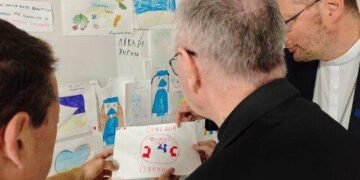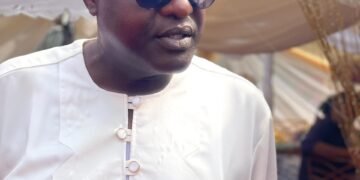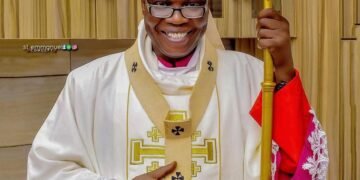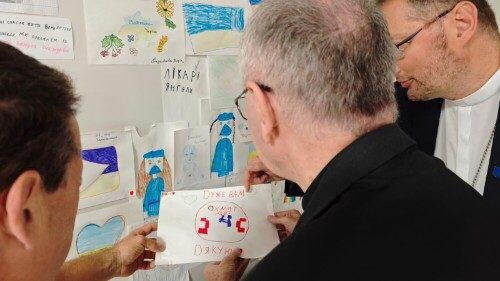By Charles Igwe
On July 23, Cardinal Pietro Parolin visited the Okhmatdyt Ukrainian Pediatric Hospital, which was severely damaged by a Russian missile strike on July 8. The attack resulted in two deaths, including a doctor, and 50 injuries, with eight minors among the injured. At the time, 627 children were in the hospital, 94 of whom had to be transferred to other medical facilities in Kyiv. The missile caused extensive damage to the hospital’s surgical, oncology, and intensive care units, as well as Ukraine’s only laboratory for blood and cancer diseases. The toxicology building and trauma unit were also severely affected.
Cardinal Parolin, welcomed by Ukrainian Health Minister Viktor Liashko and the hospital’s general director Volodymyr Zhovnir, toured the facility, which is the largest pediatric hospital in Ukraine. They discussed the hospital’s ongoing efforts to reactivate its services and the destruction caused by the bombing. Outside, the Cardinal observed the remains of the destroyed wards, while inside, he greeted and comforted the hospitalized children, offered encouragement to their parents, thanked the medical staff, and discussed potential cooperation with the Vatican’s Bambino Gesù Pediatric Hospital.
Following his visit to the hospital, Cardinal Parolin moved to the St. Sophia Museum Complex in Kyiv, where he was welcomed by its general director, Nelia Kukovalska. St. Sophia Cathedral, with its gold and green domes, has been a symbol of the Ukrainian capital and the country’s unity since its construction began in 1037. Despite enduring attacks, plundering, and fires over the centuries, it remains a significant religious site. In response to the ongoing conflict, UNESCO included St. Sophia Cathedral in Kyiv and the medieval center of Lviv on its list of endangered World Heritage Sites last September. During his visit, Cardinal Parolin viewed the cathedral and the historical exhibition, and suggested offering a prayer to the Virgin in front of the majestic mosaic of the Praying Madonna. The Vatican delegation sang the Marian hymn “Salve Regina” in Latin. At the end of the visit, the Cardinal signed the guest book and wrote a dedication.












































